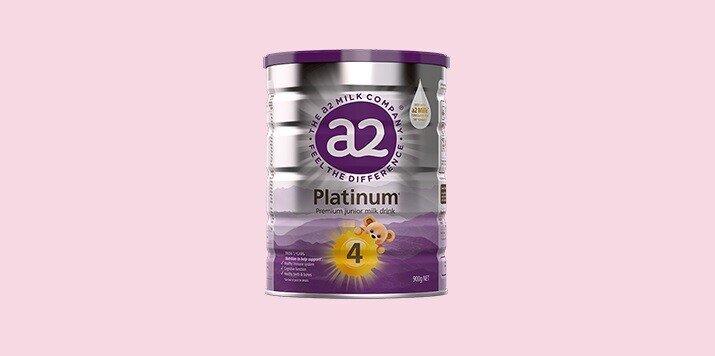“The gut is the second brain” – this is not a metaphor, but the conclusion of many neuro-gastroenterology experts worldwide.
But why is the gut – something we all thought was just for digestion – being compared to the brain? To understand this, parents need to explore the complex relationship between the digestive and nervous systems, as well as the role of gut microbiota.


Why is it said that “the digestive system is the body’s second brain”?
The gut contains over 100 million nerve cells
The gut contains over 100 million nerve cells, second only to the brain (according to Columbia University).
This shows that the digestive system is not just a food conduit but a complex control center with its own separate nerve network, called the Enteric Nervous System (ENS). This system operates independently, self-regulates, and sends signals to the brain without the need for other intermediaries.

The digestive system plays a role in digestion and nutrient absorption.
The enteric nervous system can process information
The enteric nervous system is likened to a “second brain” because it can process information and react to situations without brain intervention.
It can adjust the activity of the digestive organs, from intestinal peristalsis to the secretion of digestive enzymes, while continuously sending signals to the brain about emotional and sensory states.
For example, when a child feels hungry, the enteric nervous system sends a signal to the brain to stimulate the feeling of appetite. Conversely, when the child has had enough to eat, it will inform the brain of the feeling of fullness, helping to adjust the diet.
The enteric nervous system can send emotional signals
In addition, the enteric nervous system is related to emotions. When a child experiences anxiety or stress, the gut may react by causing nausea or discomfort.
Many of us have experienced a “heavy stomach” feeling when under pressure. This testifies to the close connection between mood and digestive health.

When a child experiences anxiety or stress, the gut may react by causing nausea or discomfort.
70% of the immune system is in the gut wall
Another important aspect is that about 70% of the immune system is in the gut wall. This means that digestive health directly affects the body’s immune capacity.
Gut microbiota not only helps digest food but also plays a crucial role in protecting the body from pathogens. When gut microbiota is in balance, it helps maintain a strong protective barrier, preventing bacteria and viruses from entering the body.
On the other hand, when gut microbiota is imbalanced, it can lead to problems such as inflammation, allergies, and even autoimmune diseases. This imbalance causes chronic inflammation, affecting overall health and increasing the risk of diseases.

Moms, don’t just ask “what does your child eat” but also “how is their digestion”
Young children have an extremely sensitive enteric nervous system. When the milk is not suitable, or digestion is difficult, they may experience symptoms such as difficulty sleeping, irritability, crankiness, and fatigue. But in fact, the behaviors that mothers see are just the tip of the iceberg. The root of the problem may start from an unhealthy gut.
In addition, the digestive system of young children is very sensitive and easily affected by many factors, from diet to living environment. When children consume unsuitable milk or food, or when gut microbiota is imbalanced, they will feel uncomfortable. These symptoms can lead to more crying, difficulty sleeping, and an inability to relax.

When children consume unsuitable milk or food, or when gut microbiota is imbalanced.
A healthy digestive system helps children feel comfortable and is the basis for optimal absorption of important nutrients such as DHA, calcium, vitamins, and minerals necessary for development. For example, DHA is essential for children’s brain development and vision. If the digestive system does not function effectively, the absorption of these nutrients will be reduced.
Choose a type of milk that supports good digestion for children
When the digestive burden is reduced, children can more easily absorb nutrients. Choosing friendly proteins, such as A2 protein in a2 Platinum products, is a smart choice for parents.
A2 protein is considered easier to digest than A1 protein, helping to minimize digestive problems such as bloating and indigestion and not putting pressure on the child’s digestive system. This facilitates the complete absorption of nutrients, thereby supporting the child’s healthy development.

Milk containing A2 protein is safer for children.
Digestive health not only affects development in the early years of life but also has long-term effects on health as children grow up. A healthy digestive system helps children build a strong immune system and reduces the risk of future diseases.
Therefore, taking care of the digestive system is taking care of the nervous system, emotions, and immune system of young children. That is why many experts today advise mothers not just to ask “what does your child eat” but also “how is their digestion”.
|
Does Eating Yogurt Every Day Make You Healthier Than Those Who Don’t?
Are you looking for a simple way to boost your health? Consider adding yogurt to your daily diet. Scientific research has unveiled a surprising array of health benefits associated with yogurt consumption. Five separate studies have revealed the positive impact of yogurt on our well-being, making it a delicious and nutritious addition to any meal plan.






































